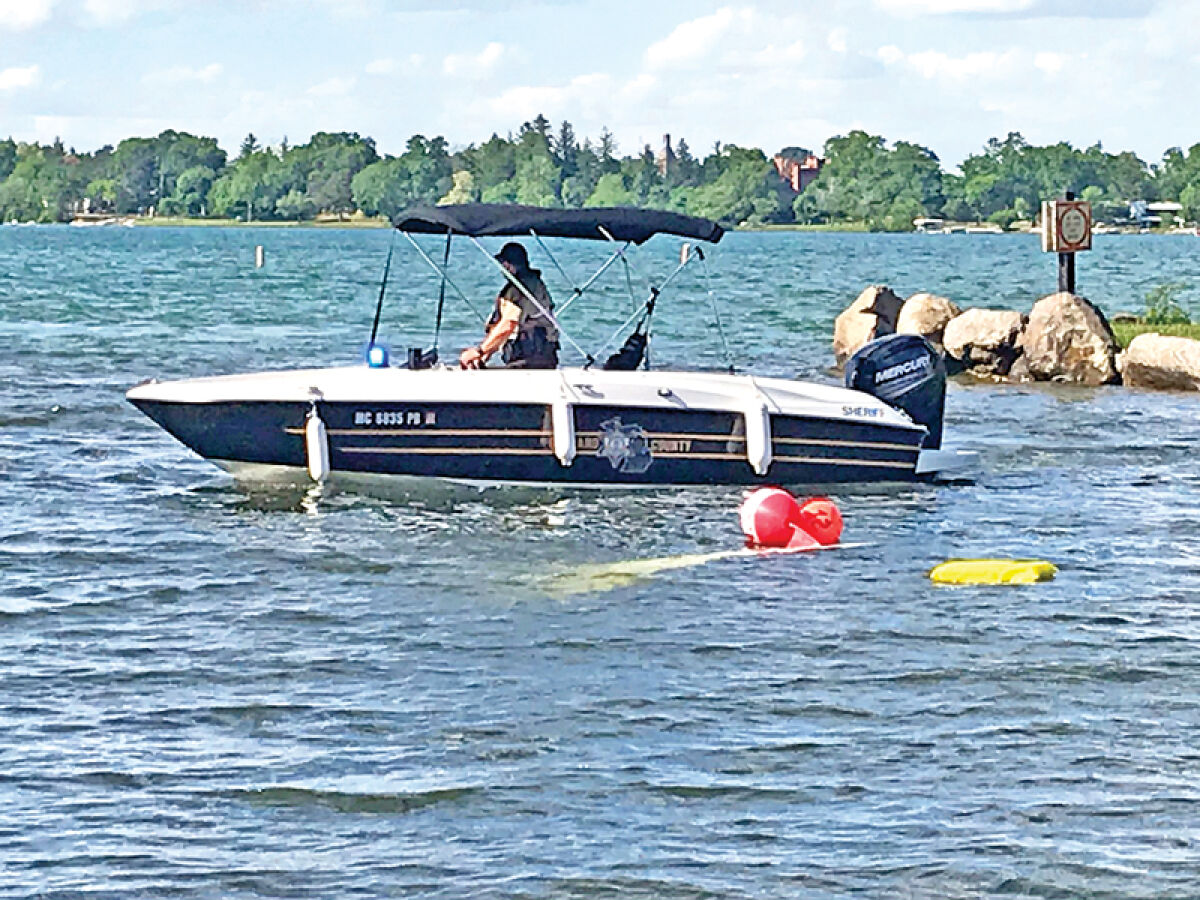OAKLAND COUNTY — Summer is in full swing, and people are enjoying Oakland County’s many beautiful lakes and waterways.
After a tragic drowning on Cass Lake in Keego Harbor, Oakland County Sheriff Michael Bouchard shared watercraft and water safety tips.
“If you are not a strong swimmer — or even if you are — it’s not a bad idea to wear a flotation device,” Bouchard said.
People can drown in mere inches of water, depending on the circumstances, and find themselves in distress very quickly, the sheriff said.
“Unlike the movies or TV, where you see somebody off in the water (screaming), ‘Help, help, help,’ and there’s time to react and maybe even get to them — that’s not the way it happens,” Bouchard said. “People get into distress very quickly, and slip under the water very quickly, oftentimes without people even seeing them.”
Do not use alcohol or other mind- or body-altering substances while operating a boat or jumping in the water from a boat, he said.
“We (the Oakland County Sheriff’s Office) have seen people who have been drinking quite a bit, (and) they’re not driving the boat, so it’s legally OK for them to do that,” Bouchard said. “(But) they don’t realize the magnification of the physiological effects of being in a very hot sun, drinking alcohol, and the body is in a dehydrated state. It can diminish your physical ability to swim or respond to an emergency.”
Other tips from the sheriff include doing a preseason check to make sure all equipment on the boat is operating properly and then checking again each time before setting sail.
Be sure to check the ship’s blower, lights and horn, and make sure that everything is in working order. The sheriff suggests “more is better” when it comes to watercraft safety equipment. Bouchard also suggests having a hook or other lifesaving tools that could help someone in distress.
Operating the boat while sober and having the proper equipment ready is paramount.
“If those two boxes are checked in terms of prevention, more than likely you’ll never see a water accident,” Bouchard said.
His message was echoed by the Greater West Bloomfield Community Coalition with their campaign, “Alcohol and Water DON’T Mix.”
According to the coalition, 70% of water recreation deaths involve the use of alcohol. Consequences of mixing alcohol and water recreation include misjudging one’s swimming ability, slowed reaction time, numbed senses, reduced coordination and reduced effectiveness of CPR.
“(The coalition’s) mission is to build community partnerships to reduce high risk behaviors including alcohol, tobacco and other drug use, to help ensure that our youth may grow to their greatest potential,” said Lisa Berkey, executive director.
The sheriff also recommends assigning a designated observer when swimming.
“We have seen incidents where children have drowned surrounded by adults at a party, because one person is not tasked with watching that child at all times,” Bouchard said. “No one noticed they quickly slipped under the water and were at the bottom of the pool and drowned.”
Having an observer is important even for adult swimmers who are strong and athletic.
“In one tragic case, a young man who was a very strong swimmer — very athletic — was swimming to train to get into … peak physical condition. The day before, he swam across the lake and back without a problem,” Bouchard said. “But the next day when he went out to do the same thing, (and) he didn’t complete the swim and drowned.”
The swimmer may have gotten cramps, Bouchard said, but it’s unknown what happened.
“Don’t be misled by the fact (that) if you are a strong swimmer or if someone is a strong swimmer, that you don’t need safety equipment or safety observation of that swimmer, because you don’t know what’s going to happen,” Bouchard said.
 Publication select ▼
Publication select ▼



























